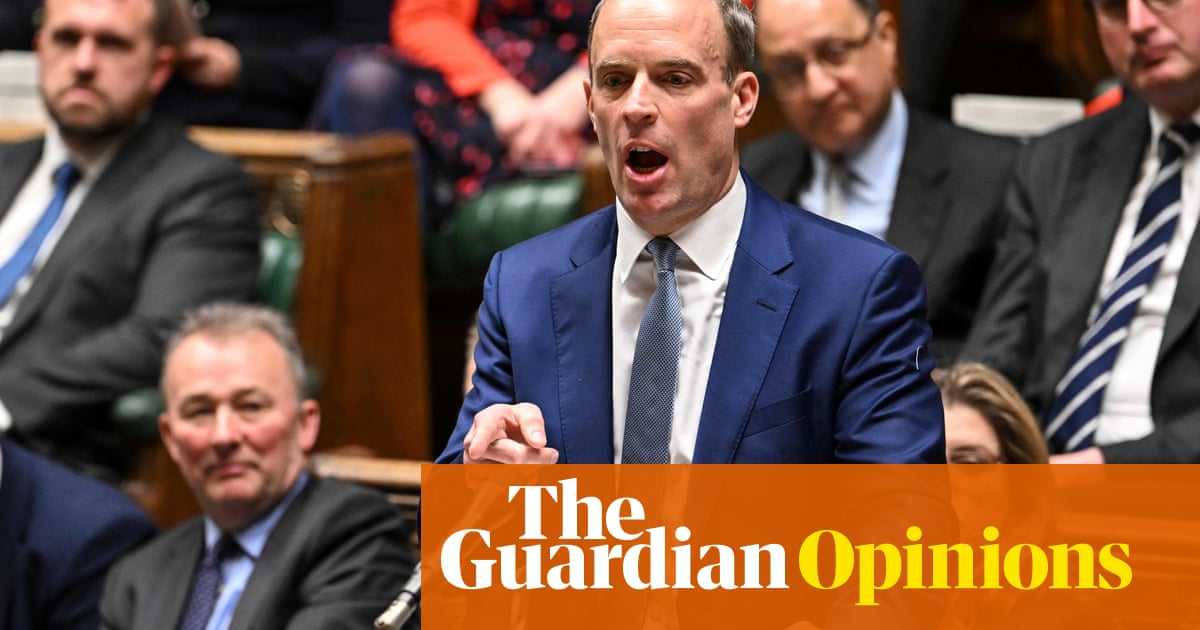
Lady Sugg, a former Foreign Office minister, has challenged her onetime boss Dominic Raab to admit he is cutting the UK aid budget for girls’ education by more than 40% as the foreign secretary also suggested UK bilateral aid to Africa would be reduced to a third of what it was two years ago.
She also claimed the government was planning to close its flagship Women’s Integrated Sexual Health programme and impose cuts of about 70-80% to spending on the Reproductive Health Supplies Coalition.
The news came on the day the UK prime minister, Boris Johnson, spoke to the Kenyan president, Uhuru Kenyatta, about a girls’ education fundraising summit they are jointly hosting in July.
Sugg quit the FCDO after the government announced five months ago that it was abandoning the statutory requirement to spend 0.7% of gross national income on overseas aid, reducing it to 0.5% for the indefinite future.
The average annual UK aid spending since 2016 on girls’ education had been £672m a year, but the 2021 commitment has been set at £400m.
Sugg, speaking at the Lords international relations select committee, said she regretted the 40% cut in girls’ education, but that it showed the overall scale of the UK cuts, since girls’ education has been listed as a government priority. She said: “Sexual and reproductive health spending was long a cause championed by Britain around the world and a really important part of keeping girls in school for that 12 years of quality education.”
Raab said he did not recognise the figures, but admitted no area was immune to cuts. He insisted the £50m UK contribution to the Global Partnership for Education would increase at the UK-convened summit this year, to be co-chaired by Johnson and Kenyatta, but did not say by how much.
Lord Ahmad, the minister responsible for reproductive health, did not deny the scale of the cuts when challenged separately by Sugg.
Raab also appeared to confirm a massive cut in bilateral aid for Africa when he said the budget this year was set at £764m. Government statistics suggest that in 2019 Africa received £2.4bn in bilateral aid.
Raab said half of this aid would be focused on east Africa, including Ethiopia, Kenya, Somalia and Sudan.
Raab has been challenged to admit he was seeking to hide the impact of nearly £4bn cuts in UK aid this year when he refused to publish the individual country budgets. Instead, in a written ministerial statement last week, he produced a new spending table, including new thematic categories not comparable with any previous spending totals.
He claimed the table represented unprecedented transparency since it was not normal to publish thematic spending plans at the start of the financial year, but this had been justified by what he described as the “momentous decisions” being taken.
Raab also told Sugg he would not publish the legal advice he had been given on whether he needed primary legislation to cut aid from 0.7% to 0.5% of gross national income, saying it would inhibit open exchanges in government.
Aid agencies have said it is impossible to plan for large aid cuts in the current financial year with country-by-country budgets still unannounced. They have claimed the FCDO must have planned its country-by-country budgets, but was not publishing them for fear of adverse publicity during the British chairmanship of the G7.
Action Against Hunger said: “Could you imagine the NHS being expected to establish, staff, and run hundreds of emergency health centres but not being told how much funding, if any, will be available to continue their operations? That they might have to close 10, 40, 70% of their clinics, but the government isn’t able to provide exact figures and will let them know at an unspecified time in the future? This is effectively the scenario we are facing.
“We need to know what funding is available to not only keep our clinics open, but to manage the fallout of potentially having to close them. This in itself raises serious concerns, particularly in volatile locations.”
Raab insisted on Tuesday that he was still not in a position to firm up numbers, and claimed it was not normal for government to publish in-country spending until much later.
Rory Stewart, the former international development secretary, on Monday said the government was being “deeply, deeply misleading” when it said it had an aspiration to return to the 0.7% spending requirement.
“There are an enormous number of voters for Boris Johnson that do not want to be spending a large amount of money on international aid,” he said at the defence thinktank RUSI. “It is unlikely that having got a huge amount of applause from cutting that he will return to the 0.7%.”












